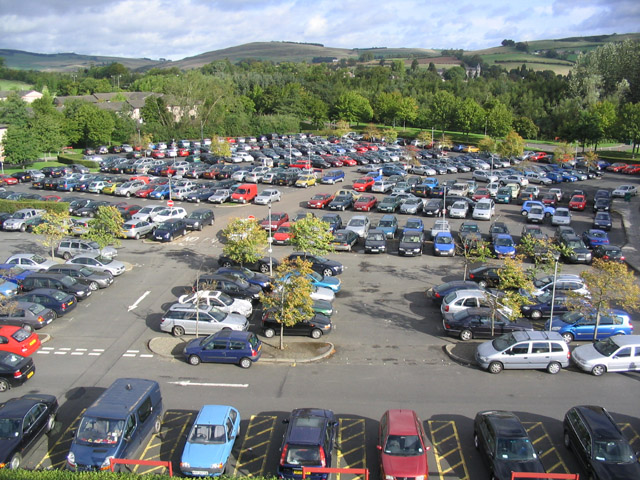The Labour manifesto has dominated the political conversation in recent weeks, as the party’s election policies were dissected across the media.
The party’s final manifesto was widely described as a left-wing platform not pursued by a major party in the UK in three decades, but some in Scotland argued that it was in fact similar in policies to the SNP.

One of those was the SNP’s former leader Alex Salmond. He took to Twitter with a list of policies which he said had already been brought in by the SNP-led government.
Labour’s manifesto includes a pledge to fund free hospital parking for all, which Salmond claimed had been abolished by the Scottish government in 2008.
Ferret Fact Service assessed this statement, and found it to be half true.
Evidence
Salmond is referencing a move announced by then health secretary Nicola Sturgeon in 2008, which scrapped parking fees at the vast majority of Scots hospitals.
She said: “It’s simply not fair to expect patients or visitors to have to pay when they come to hospital, when they may be suffering personal anxiety, stress or grief.
“Put bluntly, a car parking charge is often the last thing people need.”
According to the Scottish Government, charges were scrapped at 14 sites where fees had previously applied.
- NHS Grampian
-
- – Aberdeen Royal Infirmary and Dr Gray’s Hospital
- NHS Greater Glasgow and Clyde
-
- – Gartnavel General Hospital, Gartnavel Royal Hospital, Southern General Hospital, Stobhill Hospital, Victoria Infirmary, Western Infirmary and Yorkhill Hospital
- NHS Highland
-
- – Raigmore Hospital
- NHS Lothian
-
- – Lauriston Building, St John’s Hospital and Western General Hospital.
- NHS Tayside
-
- – Perth Royal Infirmary
In a report in 2015, the Scottish Government said the policy had saved patients and NHS staff nearly £25m in seven years.
But three hospitals were not included in the scheme: Ninewells in Dundee, Glasgow Royal Infirmary and the Royal Infirmary of Edinburgh. The reason given for this decision was that car parking was provided as part of Private Finance Initiative (PFI) contracts which were too costly to buy out.
Ninewells parking is run by Park Indigo Infra Dundee on a 30-year lease, Royal Infirmary of Edinburgh is administered by Consort on 25-year long lease, while Glasgow Royal Infirmary is run by Impreglio on a 30-year deal.
Visitors and hospital staff are still charged to park at these three hospitals.
Alex Salmond’s claim on Twitter was that parking charges had been ended by the SNP government. This is not the case, as three of Scotland’s biggest hospitals still charge.
However, the PFI deals which control parking at Ninewells, Royal Infirmary of Edinburgh and Glasgow Royal Infirmary were put in place before the SNP government was in power, so it could be argued that the prohibitive expense of making parking free at these hospitals is not the fault of the current administration at Holyrood.
In 2015, health secretary Shona Robison said the government would ideally “abolish charging at the three PFI car parks too” but blamed the contracts negotiated before 2007.
Wales also introduced a similar policy to Scotland, with four large hospitals still charging for parking due to previously existing PFI deals.
Ferret Fact Service verdict: Half True
Alex Salmond’s claim that the SNP ended NHS parking charges is partially accurate. While charges were abolished at the majority of hospitals in 2008, three large facilities still charge for parking as they are administered by outside companies under PFI deals.
Ferret Fact Service (FFS) is a non-partisan fact checker, working to the International Fact-Checking Network fact-checkers’ code of principles. All the sources used in our checks are publicly available and the FFS fact-checking methodology can be viewed here. Any questions or want to get involved? Email us at factcheck@theferret.scot or join our community forum.In response to a Ferret Fact Service request for evidence, Alex Salmond’s press team provided links to media coverage of the 2008 Scottish Government announcement.
Photo thanks to Walter Baxter, CC BY-SA 2.0















